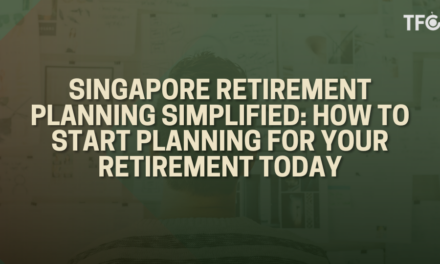How to be happy in addition to retiring early? Still based on a survey
In the previous article (link), we managed to arrive at some rough figures that can be used for retirement planning, optimised for satisfaction or happiness.
What makes people happy though? In this social media era, I no longer have the necessary attention span to actually read any books. However, a survey is still within my capacity, so let’s look again at the Singapore 2022 Quality of Life Survey, and if we can actually learn anything from reading instead of doomscrolling, from what do happier people generally value?
People are less happy now, compared to five years ago
Not a good start. As we might have read from the headlines by now, Singaporeans seem a bit less happy than they were five years ago. And this was based on 2022 responses! Imagine if they did the survey in 2023 with all the recession and retrenchment talk going on…
But wait, before you go plan your next pilgrimage to JB / Bangkok / Tokyo / London (delete according to SES), lets dive a bit deeper into what makes the happier people tick.
Perfectly balanced, as all things should be
Starting from the top, the researchers had set out four groups of values for the survey (1) family values, around how you treat and view your family; (2) sustainability, which covered social sustainability like volunteering, and environmental sustainability; (3) traditionalism, meaning how you view tradition, divorce, religion and the ilk; and (4) materialism, which measured status consciousness.
The people most satisfied with life were the “balanced”. In the context of the survey, this was a person that saw the four groups of values as being similarly important. Again, based on the 2022 QOL survey, the hypothetical balancer is married, in his mid-30s, values family and traditions, but also enjoys the benefits of a materialistic and sustainable lifestyle. With a description like that, how can you not be satisfied with life?

However, the happiest group was the catchily named “Pro-Social Family-Oriented”. This group ranked family values and sustainability as most important and materialism the least. Interestingly, this group tended to be female, older, less educated, involved in community and volunteer work, and with a lower household income than all of the other groups.
The least happy group were, perhaps unsurprisingly, the materialists. This group tended to be younger, highly educated, and enjoys the finer things in life. That being said, it is not clear whether it is materialism that leads to the unhappiness, or the unhappiness that leads to pursuit of material possessions. So, no judgment here if you are continuing to eye that Rolex or Chanel 2.55, so long as it sparks joy.
Takeways for a TL;DR?
Be social, no need to be ascetic but don’t only chase material possessions or overly weigh one aspect of your life over the other. These seem to be the key to, if not happy, at least satisfied.
That being said, it is difficult to draw immediate lessons for our future retiring selves from this. What we value is ultimately based on our experiences, and no amount of reading will change that. However, what we value will naturally also change as we grow and circumstances change, so as a materialist, not all hope is lost.
What is clear though, is that people with social circles through friends and family and who have a broader interest in society, are happier than people who just chase status. Perhaps that is the real lesson here as we envisage early retirement. It is not just about binge watching K-dramas. exiting the rat race or being able to afford nice holidays; but also being involved with those around you, create the social connections, and doing the things you find meaningful, to create a life you love.
You can now be our community contributor and make a pitch to have topics you are most curious off and favourite personality be on our show.
Join our community group and drop us your insights on this topic.

![You Do Not Need A Lot Of Money For Lean FIRE [TFC 161 with HoneyMoneySG]](https://thefinancialcoconut.com/wp-content/uploads/2024/03/Retire-On-Your-Terms-Beyond-the-Governments-Retirement-Age-Guidelines-1-440x264.png)
![How One Couple Broke Free of the Rat Race from Singapore to Penang [Chills 161 ft CorporateBreakout]](https://thefinancialcoconut.com/wp-content/uploads/2024/03/Chills-161-440x264.png)
![1M65 & Getting to $1 Million By 35? [Chills 61 with HoneyMoneySG]](https://thefinancialcoconut.com/wp-content/uploads/2024/03/Chills-with-TFC-thumbnail--440x264.png)
